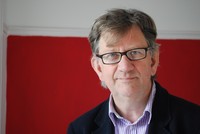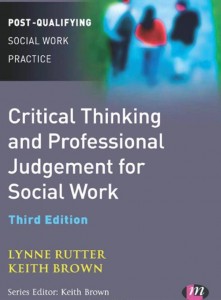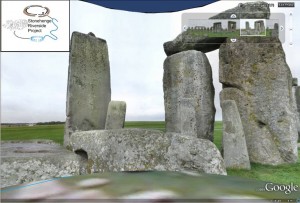Watch this excellent short video from BU’s Richard Williams describes research highlighting the UK as one of the top three countries in the world for child protection laws.
To see other BU videos on YouTube go to the BU YouTube page.
Latest research and knowledge exchange news at Bournemouth University
Watch this excellent short video from BU’s Richard Williams describes research highlighting the UK as one of the top three countries in the world for child protection laws.
To see other BU videos on YouTube go to the BU YouTube page.
The BU Challenges (previously the Research Themes) were launched in December at the first of the BU-wide Fusion events. The Challenges are societally-led, encourage cross-School working and collaboration, and will be the main vehicle through which our research is presented externally in future.
To discuss how to take the Challenges forward and foster collaborative working, Matthew Bennett would like to talk to all staff interested in the Challenges. Matthew will spend an hour per Challenge either in the Costa in the Atrium or in the Costa in Studland House and invites you to join him to talk about the way forward for each theme.
The session times are listed below:
|
Research Theme |
Date and Venue |
| Creative and Digital Economy | 11 January – 2.00 pm to 3.00 pmCosta Coffee Shop, Poole House
|
| Culture and Society | 12 January – 2.30 pm to 3.30 pmCosta Coffee Shop, Poole House
|
| Environmental Change and Biodiversity | 16 January – 2.00 pm to 3.00 pmCosta Coffee Shop, Poole House
|
| Entrepreneurship and Economic Growth | 18 January – 11.00 am to 12.00 pmCosta Coffee Shop, Studland House
|
| Green Economy and Sustainability | 18 January – 4.00 pm to 5.00 pmCosta Coffee Shop, Poole House
|
| Recreation and Leisure | 19 January – 10.00 am to 11.00 amCosta Coffee Shop, Poole House
|
| Health, Wellbeing and Aging | 25 January – 1.30 pm to 2.30 pmCosta Coffee Shop, Studland House
|
| Technology and Design | 23 January – 4.00 pm to 5.00 pmCosta Coffee Shop, Poole House
|
 Watch this excellent short video from BU’s Dr Phillip Alford who talks about undergraduate involvement in a real Ad-words campaign and the successes it brings to students and the small businesses involved.
Watch this excellent short video from BU’s Dr Phillip Alford who talks about undergraduate involvement in a real Ad-words campaign and the successes it brings to students and the small businesses involved.
To see other BU videos on YouTube go to the BU YouTube page.
 Watch this excellent short video from BU’s Professor Hugh Chignell who has worked with London Broadcasting Company’s independent radio news archive to digitalise over 8,000 tapes, creating a live history account which is now available on the British Universities Film and Video Council’s website: http://radio.bufvc.ac.uk/lbc/
Watch this excellent short video from BU’s Professor Hugh Chignell who has worked with London Broadcasting Company’s independent radio news archive to digitalise over 8,000 tapes, creating a live history account which is now available on the British Universities Film and Video Council’s website: http://radio.bufvc.ac.uk/lbc/
To see other BU videos on YouTube go to the BU YouTube page.
 Watch this excellent short video from BU’s Dr Heather Hartwell (School of Tourism and School of Health and Social Care) who describes unique research facilitating strategic direction for public health, in alignment with tourism strategies, aimed at creating conversation and collaboration
Watch this excellent short video from BU’s Dr Heather Hartwell (School of Tourism and School of Health and Social Care) who describes unique research facilitating strategic direction for public health, in alignment with tourism strategies, aimed at creating conversation and collaboration
To see other BU videos on YouTube go to the BU YouTube page.
 Watch this excellent short video from BU’s Debbie Sadd (School of Tourism) who describes research into the social legacy of the London 2012 Olympics and the impact of the grounds on local people.
Watch this excellent short video from BU’s Debbie Sadd (School of Tourism) who describes research into the social legacy of the London 2012 Olympics and the impact of the grounds on local people.
To see other BU videos on YouTube go to the BU YouTube page.
Thank you to all those who supported the Health, Wellbeing and Ageing research theme at last week’s fusion day. There was some excellent discussion and guidance on how the theme should develop and please can we encourage a continued dialogue.
We have managed to secure some admin support and therefore soon we will be asking you for key words that you think best define your research area. We can then develop a tagged word cloud which will facilitate our understanding of who we are and enable emergence of potential themes of direction. These will be ‘tested’ with the community on April 18th when we will have another face to face fusion day.
Hope that you all have a lovely Christmas and see you in the New Year
GREEN ECONOMY AND SUSTAINABILITY – post presentation notes
 FUSION – smarter way of working, many have already been working in this way. Research informs education; education (students) may be subjects of research and co-producers; both may inspire PP. PP can influence research, be subject of research and feeds back into education.
FUSION – smarter way of working, many have already been working in this way. Research informs education; education (students) may be subjects of research and co-producers; both may inspire PP. PP can influence research, be subject of research and feeds back into education.
THEME – offers excitement and sharing which could enhance all aspects of the fusion triangle through collaboration across disciplines
POINTS FROM GROUP DISCUSSION/FLIP CHARTS
ACT NOW to seize window of opportunity. The language for Rio+20 in 2012 reinforces the terms ‘Green economy’. Negotiations leading to Rio are underway with the argument being that the way to sustainable development is to put green growth at the heart of economic development strategies while at the same time reducing pollution and green house gasses, maintaining biodiversity and reducing inefficient use of natural resources. The time to get material out and seek to influence is now.
INTER-DISCIPLINARY research/perspectives are required to address SD and develop solutions. There are gaps in the literature in a number of areas. Perhaps a future session might articulate the current gaps?
THINK PIECES might be developed to get out externally but as a starting point this might be used internally to enable the group to learn about the diversity of perspectives within the group. Need a way to share these that is internal ‘Google docs’ might be useful. Need something to support collaborative working either asynchronous but preferably synchronous.
FUTURE EVENTS and collaborations
STICK IT COMMENTS ideas and areas of interest:
The government have just announced their ‘Innovation and Research Strategy for Growth’ – information regarding the policy and supporting documentation can be found at the following links:
Professional judgement, communication and critical reflection are vital aspects of a social worker’s role and a new book, ‘Critical thinking and professional judgement for social work’, aims to empower post-qualifying students to develop these skills.
 Author Lynne Rutter from the Centre for Post Qualifying Social Work at Bournemouth University explains more about professional learning, a new way of thinking and her own research.
Author Lynne Rutter from the Centre for Post Qualifying Social Work at Bournemouth University explains more about professional learning, a new way of thinking and her own research.
“I am intrigued by the psychology associated with learning. It is obviously an emotional and very personal experience, especially for qualified practitioners, but it should also be an empowering experience.
“For me, professional higher education is about developing more complex thinking which has practical, reflective, personal, moral, as well as objective, conceptual and theoretical aspects. All these aspects are part of professional reasoning and judgement and ultimately professional understanding and knowledge, and so are equally important.
“My journey has led me to understand that there is a productive and empowering synergy here if no one aspect is privileged over the others and if a professional perspective becomes a focus. These were very important elements within the professional doctorate which made it very meaningful and useful for my own practice. The book brings much of this work together and aims to highlight and develop the complex thinking associated with professional learning as a key part of developing confidence and authority in a professional role.”
Order a copy of ‘Critical thinking and professional judgement for social work’.
Google Under-the-Earth: Seeing Beneath Stonehenge is the first application of its kind to transport users around a virtual prehistoric landscape, exploring the magnificent and internationally important monument, Stonehenge.
The application was developed by Bournemouth University archaeologists, using new field data gathered during their work with colleagues from the universities of Sheffield, Manchester, Bristol, Southampton and London as part of the Stonehenge Riverside Project. Google Under-the-Earth works by adding layers of archaeological information to Google Earth technology.
The unique visual experience lets users interact with the past like never before. Highlights include taking a visit to the Neolithic village of Durrington Walls, a trip inside a prehistoric house and the opportunity to see reconstructions of Bluestonehenge at the end of the Stonehenge Avenue and of the great timber monument called the Southern Circle, as they would have looked more than four thousand years ago.
The project is funded by the Arts and Humanities Research Council (AHRC) and Google Research Awards, a program which fosters relationships between Google and the academic world as Google fulfils its mission to ‘organize the world’s information and make it universally accessible and useful.’
But this fabulous educational and cultural tool does not end with Stonehenge. Archaeological scientist Dr Kate Welham, project leader at Bournemouth University, explained that it is the start of something much bigger.
“It is envisaged that Google Under-the-Earth: Seeing Beneath Stonehenge could be the start of a new layer in Google Earth. Many of the world’s great archaeological sites could be added, incorporating details of centuries’ worth of excavations as well as technical data from geophysical and remote sensing surveys in the last 20 years,” she said.
Dr Nick Snashall, National Trust Archaeologist for Stonehenge and Avebury World Heritage Site, said: “The National Trust cares for over 2000 acres of the Stonehenge Landscape. Seeing Beneath Stonehenge offers exciting and innovative ways for people to explore that landscape. It will allow people across the globe, many of whom may never otherwise have the chance to visit the sites, to share in the thrill of the discoveries made by the Stonehenge Riverside team and to appreciate the remarkable achievements of the people who built and used the monuments.”
You can download the application from the Google Under-the-Earth: Seeing Beneath Stonehenge site. The tool is easy to use and requires Google Earth to be installed on your computer.
A prestigious journal has awarded two Bournemouth University (BU) academics the ‘Best Paper’ accolade for their work in the largely unstudied domain of consumer behaviour in digital virtual spaces, including video games, virtual communities and the web.
‘Concepts and practices of digital virtual consumption’, by BU’s Dr Janice Denegri-Knottand Dr Mike Molesworth, was among the most downloaded work published by Consumption Markets and Culture last year.
The paper examines digital virtual consumption (such as owning luxury cars in a video game), the relationship it has within the real material world and the appeal of consumption that is deprived of a material, physically tangible form.
 Denegri-Knott and Molesworth think of consumption on spaces like eBay, Amazon and World of Warcraft as somewhere between the consumers’ imagination and material consumption, and believe it is charged with transformative potential for its users.
Denegri-Knott and Molesworth think of consumption on spaces like eBay, Amazon and World of Warcraft as somewhere between the consumers’ imagination and material consumption, and believe it is charged with transformative potential for its users.
Consumers can fulfil all sorts of daydreams, such as finding a designer dress on eBay, or performing the fantasy of being a powerful wizard. They don’t just look and ask ‘what might it be like’, but may ‘try on’ being an entrepreneur, someone with wealth, a collector, a trader, an advertiser, a criminal, a hero, a warrior, or many other ways of being.
Their roles are enhanced as the scripts available to them expand and can be tested within relatively small timescales. The digital virtual individual may be an avid collector one year, a warrior hero the next, and a successful entrepreneur the year after that. The video game player may be a successful criminal one week and a racing driver the next.
Denegri-Knott and Molesworth believe more emphasis is needed on the relationship between the virtual realm and the real-world and, as digital virtual consumption is largely unstudied, they propose an integrative view for further research.
“The paper was written in the spirit of mapping out potential avenues for research, and also to give us some kind of conceptual frame to make sense of consumption in emerging digital virtual spaces,” said Dr Denegri-Knott. “We now have a body of work that looks at the way in which users consume through eBay, from which we have been able to draw some insights on the acceleration of consumer desire and the problems this creates. We now would like to develop the theme of transformative potential in digital virtual consumption; that is to see how consumers make sense of their experiences and how they integrate these into their everyday lives.”
The pair are also now researching the experience of owning digital virtual goods, in particular the ways in which consumers become attached to certain goods, and how they maintain their preferential stature.
Dr Denegri-Knott concluded: “We were both delighted and surprised to hear that our paper was so well received by the readers of the journal and by the judging panel. This is a real achievement for the Emerging Consumer Cultures Group (ECCG).”
Watch this excellent short video from BU’s Professor Dean Patton on how research has helped high growth firms and established businesses to develop further, through increased revenue and job creation.
To see other BU videos on YouTube go to the BU YouTube page!
Dr Maharaj Vijay Reddy was invited to attend the United Nations Research Institute for Social Development’s conference on ‘Green Economy and Sustainable Development’ at the European headquarters of the United Nations Office in Geneva UNOG (10-11 Oct 2011). The aim of this cutting-edge conference was to debate and identify the sustainability and green economy priorities and to prepare and shape subsequent social policy discussions before the Rio+20 global summit next year.
The UNOG conference received invited attendees from different parts of the world from several international organisations (e.g. UNDESA, UNESCAP, UNEP, UNESCO, and UNDP), many national and international funding agencies (e.g. World Bank, DFID, AUSAid), research institutes and leading universities. Key areas covered in the discussions include: the Global Economic Crisis, Nature in the Market-World, The Social Dimensions of Carbon Trading, Economic Growth, Social Divides and Sustainable Development, Climate Change, Double Injustice and Social Policy, The Global Political Economy, Governance in Environmental Policy, Realizing Pro-Poor Development in the Carbon Commodity Chain, The Potential and Constraints on the Payment for Ecosystem Services Markets, Agriculture and Rural Development, An Institutional Analysis of Biofuel Policies and their Social Implications in Developing Countries, and Future Research and Directions for Rio+20.
 Watch this excellent short video from BU’s Dr Richard Shipway who discusses the 2012 Olympic and Paralympic games and how his research has been used by local councils to improve the delivery of the games in the area.
Watch this excellent short video from BU’s Dr Richard Shipway who discusses the 2012 Olympic and Paralympic games and how his research has been used by local councils to improve the delivery of the games in the area.
To see other BU videos on YouTube go to the BU YouTube page!
In looking at Entrepreneurship and Economic Growth we cannot ignore recent regional evidence, links to 2 documents which set the scene
The LEP prospectus http://www.dorsetforyou.com/media.jsp?mediaid=164554&filetype=pdf
The South West Regional Economic Indicators http://economy.swo.org.uk/publications/economic-indicators/south-west-regional-economic-indicators/
 At a recent Media School meeting attendees asked us to outline some of the common funders, so here is a general overview of those funders with a Media flavour both domestic and further a field. Part One concentrates on the key UK funders and in the next few days we’ll post information on potential EU funders and schemes.
At a recent Media School meeting attendees asked us to outline some of the common funders, so here is a general overview of those funders with a Media flavour both domestic and further a field. Part One concentrates on the key UK funders and in the next few days we’ll post information on potential EU funders and schemes.
The two primary research councils for media-focused research are the Arts & Humanities Research Council (AHRC) and the Economic & Social Research Council (ESRC) which are responsible for funding the vast majority of arts and humanities in the UK. The success rates for the AHRC are the highest of all RC’s (see the recent blog article) and it offers standard grants, networking grants, collaborative doctoral awards and early career research grants.
The RCs also focus on particular initiatives to address issues of intellectual and wider cultural, social or economic urgency, these schemes tend to have higher success rates than the standard grants so are always worth consideration. Information on AHRC initiatives can be found here.
An overview – AHRC Early Career Research Grants:
Early Career Research Grants are intended to assist new researchers at the start of their careers in gaining experience of managing and leading research projects. They look to support well-defined research projects enabling individual researchers to collaborate with, and bring benefits to, other individuals and organisations through the conduct of research.
They also enjoy higher success rates than standard grants, there are no set submission dates, projects can last up to 60 months and should cost between £20,000 and £200,000 fEC.
To be eligible as an early career researcher you must be within eight years of the award of your PhD or equivalent professional training or within six years of your first academic appointment.
Further information on all opportunities can be found here – AHRC ESRCs
The British Academy supports excellent ideas, individuals and intellectual resources in the humanities and social sciences. In particular, the Academy enables UK researchers to work with scholars and resources in other countries, sustain a British research presence in various parts of the world and help to attract overseas scholars to the UK.
An overview – International Partnership and Mobility Scheme:
Aims to support the development of partnerships between the UK and other areas of the world where research excellence would be strengthened by new, innovative initiatives and links. Awards are for research partnerships between scholars in the UK and scholars in Africa, Latin America and the Caribbean, Middle East, South Asia, or East Asia.
Partnerships might include a range of related activities, and mobility should form an integral part of proposals. Workshops and seminars should form an integral part of the programme. The main purpose of the funding is to cover travel and maintenance costs, although costs related to other eligible activities will be considered. Partnerships including a training element and involving scholars in the early stages in their career will be looked on favourably.
Grants are offered up to a maximum of £10,000 per year for a period of one year or three years. The submission deadline is 8th February 2012.
Further information can be found here – British Academy International Partnerships
In addition to these big UK funders, there are also some smaller more focused funders which may appeal to the interests of specific research groups within the school. For instance conference grants offered by the The Modern Humanities Research Association (MHRA) could be of interest to the Narrative Research Group – information can be found here MHRA.
This issue of Natural Resources Forum considers the relations between sustainable development and the “green economy” and it matches our Green Economy & Sustainability research theme (isn’t that great?)
http://onlinelibrary.wiley.com/doi/10.1111/narf.2011.35.issue-3/issuetoc
It features seven articles which provide an insight to the following questions. ‘Under what constraints will a green economy have to take place if we are serious on addressing climate change? What can past technological transitions teach us about the feasibility of a green energy transition? How can institutions (in a broad sense) foster more sustainable outcomes? What types of financial instruments could be mobilized to promote greener economies?’ (Le Blanc, 2011).
A previous issue of Natural Resources Forum (Fulai et al. 2011) addresses another interesting the question “Is the concept of a green economy a useful way of framing policy discussions and policymaking to promote sustainable development?”
For those interested and passionate about the Green Economy like me, it provides great ideas and suggestions for further debate.
Enjoy the reading and feel free to email me for discussion.
Elena